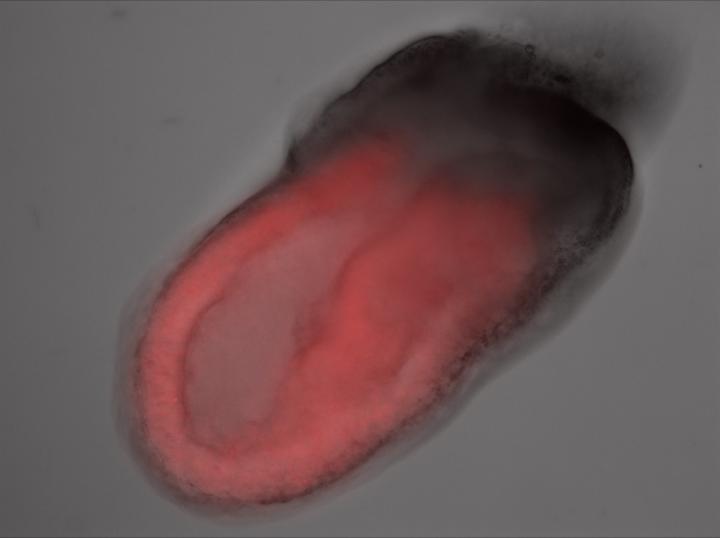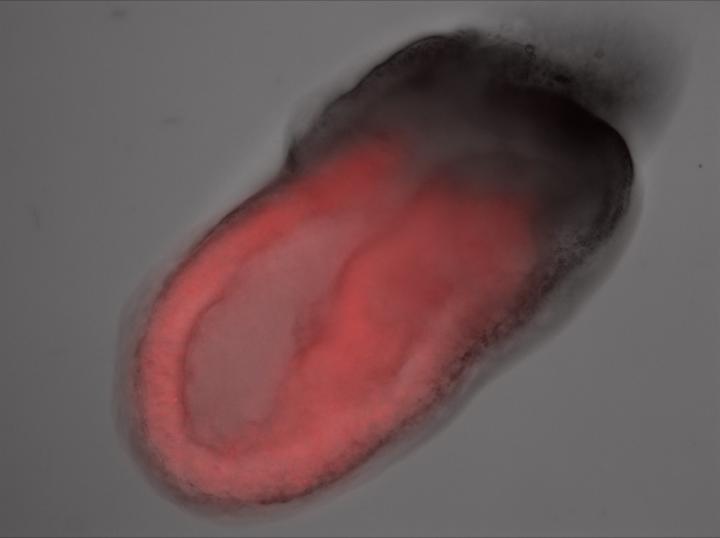
Credit: Joshua Brickman
New research conducted at the stem cell centre, DanStem, at the University of Copenhagen shows that insulin is a key determinant of embryonic stem cell potency in mammals. When large amounts of Insulin are around, stem cells retain their ability to make all the cell types in the body. However, too little insulin leads to embryonic stem cells being transformed into a new type of stem cell, one that can make tissues that support foetal development and helps make the different internal organs. As embryonic stem cells come from embryos around the time they implant into the mother, this study suggests that maternal insulin and diet maybe be important for the earliest stages of pregnancy. This study also points to new ways that stem cells can be made and differentiated to help treat degenerative diseases.
Insulin was found to be a new factor that is important for the identity of pluripotent stem cells, cells able to make all the cells in the body. A new study conducted at the Novo Nordisk Foundation Center for Stem Cell Biology, DanStem, at the University of Copenhagen reveals that insulin acts in unexpected ways to stabalise stem cells in the laboratory and on embryos cultured in a dish.
'We were exploring how stem cells respond to signals produced by other cells, instructions that tell them to develop into cells that are specialized for organ and intestine formation, the endoderm. But then, when we added these factors to the food (or media) normally used to grow stem cells in, we were surprised that these signals could instruct stem cells to stay as stem cells. By comparing different medias we discovered a key difference, Insulin. With Insulin, they stay as stem cells, but with out it they make a special type of endoderm. As this type of stem cell is like the cells of the early embryo, it suggests that insulin could also be important for human development implying maternal diet and insulin levels could effect the earliest stages of a healthy pregnancy, says head of the study Professor Joshua Brickman from DanStem. At the same time, he stresses that some of these ideas are still only conjecture and a lot of work will now need to be done to understand the relationship between maternal insulin, implantation and early development before researchers can make concrete recommendations.
Transmitter Substances Play a Main Role in the Discovery
The researchers in the study have examined in detail two types of stem cell which resemble each other. One kind – the embryonic stem cells, also called pluripotent stem cells – have the ability to support the development of the entire foetus. These cells can develop into any types of cell in the body. The other kind is the extraembryonic cells, which produce a type of endoderm that makes tissues that support foetal development known as the yolk sac and also helps make the internal organs, for example the intestinal system.
The researchers have studied two transmitter or signal substances (Nodal and Wnt), which play a main role in stem cell development. Here they discovered that the transmitter substances were able to promote cell division in the endoderm and, at the same time, supported cell division among the pluripotent cells, but that they could choose which cell they supported based on what insulin was telling them to do. If the researchers removed insulin, the pluripotent stem cells stopped dividing and endoderm cells replaced them. When Insulin was there, the pluripotent cells grew and retained the ability to become any cell in the body.
'The mechanisms we have uncovered are very interesting. This suggests that different amounts of insulin cause cells to respond differently to the same signals. So far we have only done tests on mice, but the next step is to examine whether the same mechanisms are found in humans', says post.doc. Kathryn Anderson.
###
Media Contact
Joshua Brickman
[email protected]
http://healthsciences.ku.dk/
Original Source
http://healthsciences.ku.dk/news/2017/09/a-new-role-for-insulin-as-a-vital-factor-in-maintaining-stem-cells/





